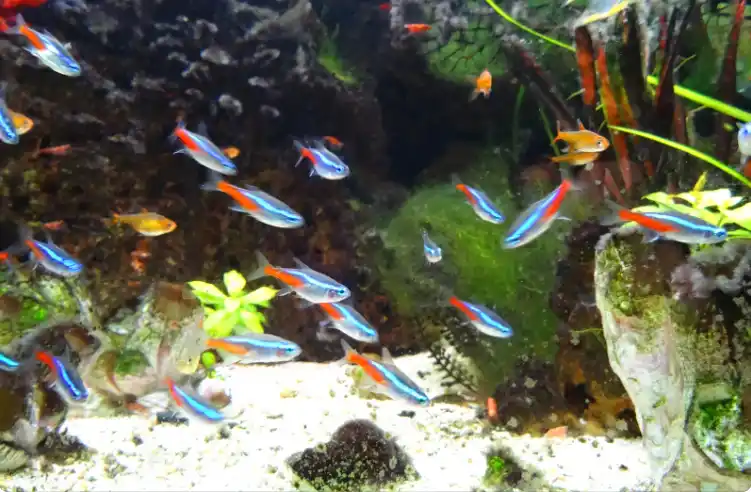Why is My Tetra Not Eating? [4 Advice from Expert]
If you are a fish owner, you know how important it is to take good care of your aquatic pets. One of the things you need to monitor is their eating habits.
If you notice that your tetra is not eating, it may indicate a problem that needs to be addressed immediately. This article will discuss why your tetra may not be eating and how you can manage the issue.
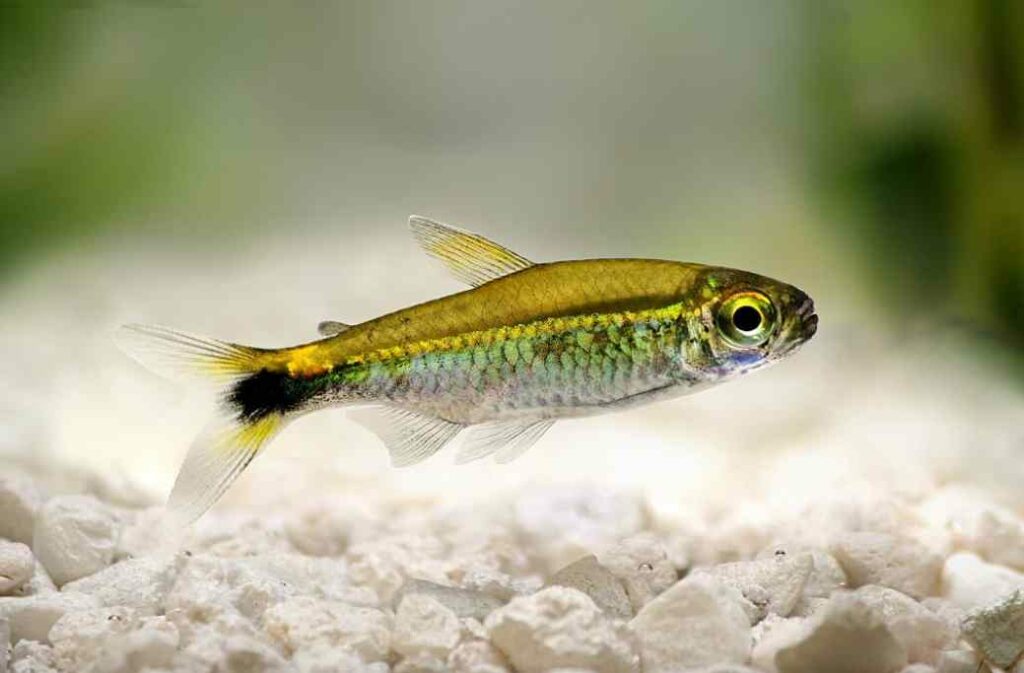
Table of Contents
Reasons why Tetras stop eating
Poor Water Quality
The water quality in your aquarium is crucial to your fish’s health and well-being. If the water is not clean or has high toxins, your tetra may not feel comfortable eating.
Tetras are sensitive to changes in water chemistry and may refuse food if the conditions in the aquarium are not optimal. Poor water quality can also cause stress and illness, which can further exacerbate the issue.
Stress
Tetras are social fish and enjoy swimming in schools. If your tetra is isolated or feels threatened, it may become stressed and stop eating.
Stress can be caused by a variety of factors, such as overcrowding, aggressive tank mates, or a lack of hiding spots in the aquarium. If your tetra is not eating and appears lethargic or inactive, it may be a sign of stress.
tinyfishtank
Illness
It may indicate an illness if your tetra is not eating and exhibits other symptoms such as discoloration, lethargy, or swimming erratically. Common diseases that affect tetras include fin rot, ich, and velvet.
If you suspect that your tetra is sick, it is essential to quarantine it immediately to prevent the spread of disease to other fish in the aquarium.
Overfeeding
Overfeeding can be a common issue among fish owners. If you are feeding your tetra too much food, it may not be hungry enough to eat at its regular feeding time.
Additionally, excess food can cause poor water quality, which can lead to stress and illness. It is essential to feed your tetra in moderation and only what it can consume in a few minutes.
How to solve the tetra not eating issue
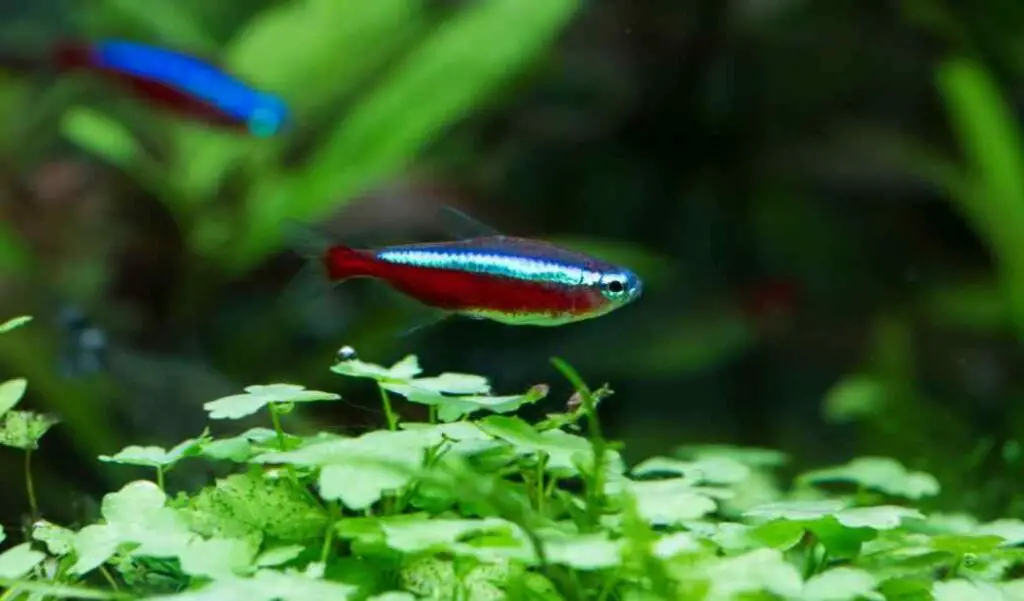
Check the Water Quality
The first step in addressing the issue is to check the water quality in your aquarium. Use a water testing kit to measure the ammonia, nitrite, and nitrate levels in the water.
If any of these levels are high, it may indicate poor water quality, which can be harmful to your tetra’s health. Perform regular water changes and ensure your filter works properly to maintain optimal water conditions.
Minimize Stress
If your tetra is stressed, it is essential to identify and address the source of stress immediately. Ensure your tetra has enough space to swim and hide and avoid overcrowding the aquarium.
If aggressive tank mates are causing anxiety, consider moving them to a separate tank. Provide a balanced diet and minimize disturbances in the aquarium to reduce stress.
Check for Illness
If you suspect that your tetra is ill, quarantine it immediately and observe its behavior. Consult with a veterinarian or aquatic specialist to identify the type of illness and the appropriate treatment.
It is important to follow treatment guidelines carefully and closely monitor your tetra’s health.
Adjust Tetra Feeding Habits
If overfeeding is the issue, adjust your feeding habits accordingly. Feed your tetra in moderation and only what it can consume in a few minutes.
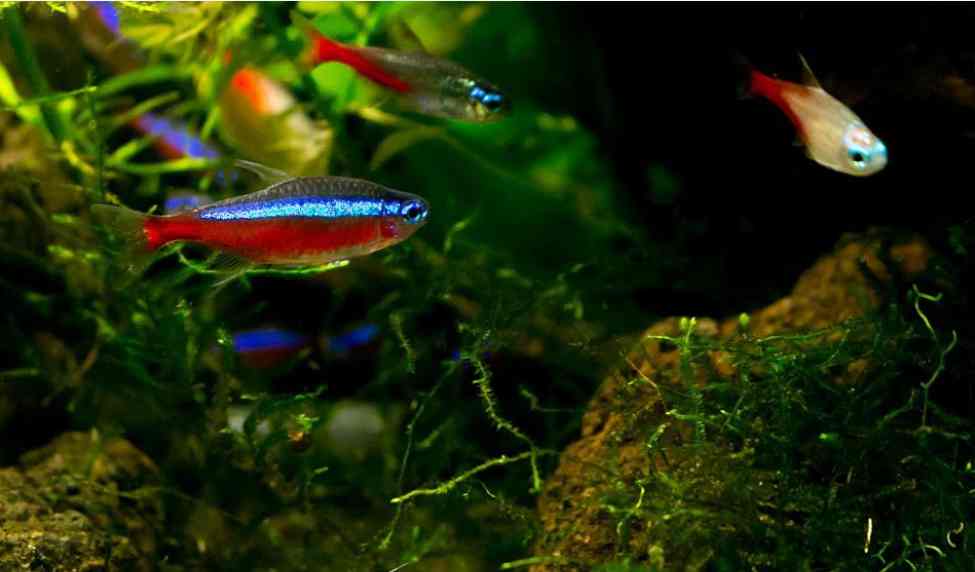
Consider feeding smaller meals more frequently throughout the day rather than one large meal. This will prevent overfeeding and keep your tetra’s metabolism active and healthy.
In addition to these steps, ensure that you are providing a balanced diet to your tetra. Tetras are omnivores and require a mix of protein and vegetation in their diet.
Consider feeding them a mix of high-quality flakes, pellets, and live or frozen foods. This will provide the necessary nutrients and keep them healthy and active.
tinyfishtank
Conclusion
In conclusion, if you notice that your tetra is not eating, it may indicate a problem that needs to be addressed immediately. Poor water quality, stress, illness, and overfeeding can lead to loss of appetite in tetras.
It is essential to monitor your tetra’s behavior and take action if you notice any changes in their eating habits. By addressing the issue promptly and taking appropriate steps to maintain a healthy aquarium, you can ensure the well-being of your tetra.
Related Articles: –
Why is my Tetra always hiding? 5 Reasons & Solutions
Can Neon Tetras survive without food for a long time? [5 Hidden Tips]
FAQs
Why is my tetra not eating even though it looks healthy?
There could be several reasons your tetra is not eating, even though it appears healthy. Poor water quality, stress, illness, and overfeeding are common culprits. Monitoring your tetra’s behavior and taking appropriate steps to address the issue is essential.
How often should I feed my tetra?
Tetras should be fed in moderation and only what they can consume in a few minutes. Consider providing smaller meals more frequently throughout the day rather than one large meal.
What should I feed my tetra?
Tetras are omnivores and require a mix of protein and vegetation in their diet. Feed them a mix of high-quality flakes, pellets, and live or frozen foods to provide them with the necessary nutrients.
How can I reduce stress in my tetra?
Provide your tetra with enough space to swim and hide, avoid overcrowding the aquarium, and minimize disturbances to reduce stress.
What should I do if I suspect my tetra is ill?
Quarantine your tetra immediately and consult a veterinarian or aquatic specialist to identify the type of illness and the appropriate treatment. Follow treatment guidelines carefully and monitor the health of your tetra closely.
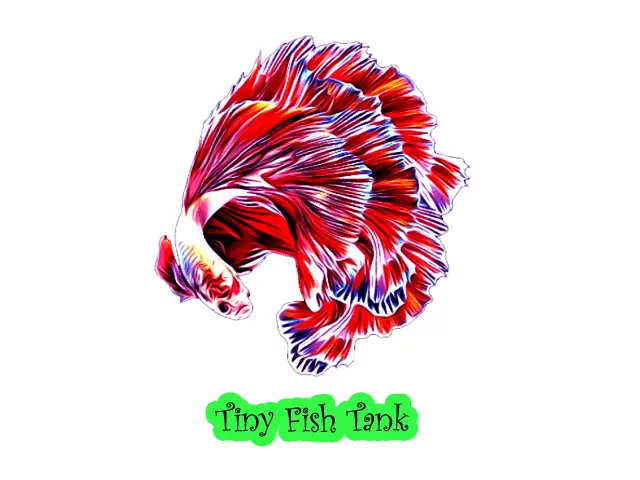
![How to Get Rid of Algae in tetra Tank? [Experts Secret]](https://www.tinyfishtank.com/wp-content/uploads/2023/03/How-to-Get-Rid-of-Algae-in-tetra-768x417.webp)
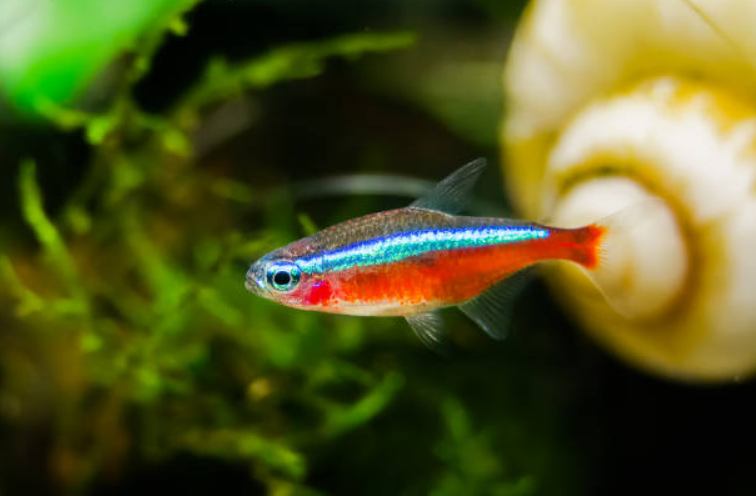
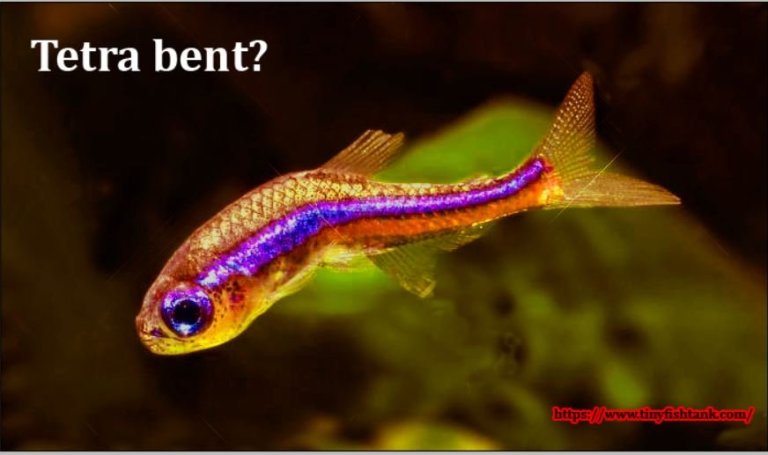
![Are Tetras Good for Aquaponics? [3 Tips to Success]](https://www.tinyfishtank.com/wp-content/uploads/2023/03/Are-Tetras-Good-for-Aquaponics.webp)
![Why Do Tetras Chase Each Other [5 Reasons & Solutions]](https://www.tinyfishtank.com/wp-content/uploads/2023/03/Why-Do-Tetras-Chase-Each-Other-768x453.webp)
